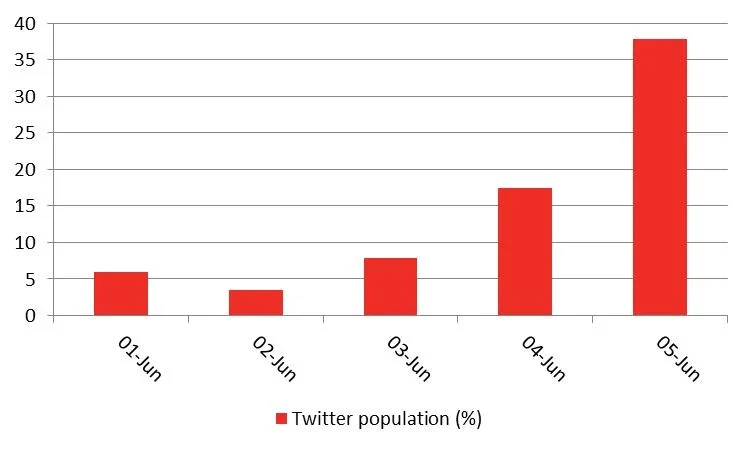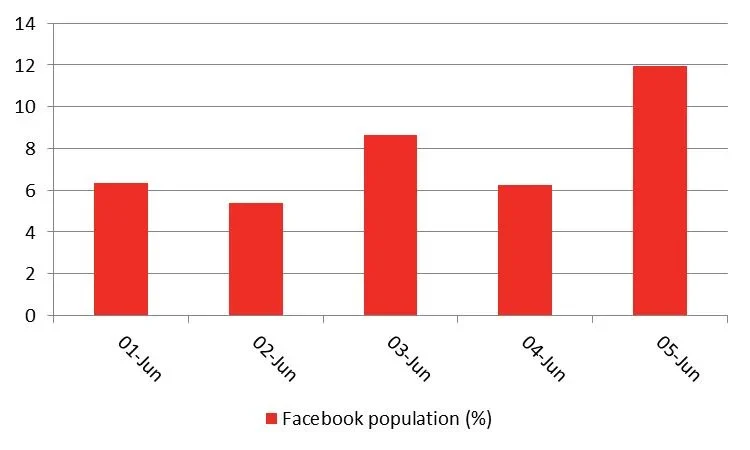Yesterday Tesco announced that its like-for-like UK sales had dropped by 1% for the 13 weeks to 25 May. The news had an impact on the stock market with the retailer’s shares falling by 5%.
These latest results have come at a difficult time for Tesco, with the supermarket chain having recently recorded its first fall in full-year group profits for two decades.
Using YouGov’s social media analysis tool, SoMA, we can measure the impact of Tesco’s latest financial woes on the social networking sites, Twitter and Facebook.
What our analysis indicates is that while the news had a significant impact on Twitter, it received very little attention on Facebook.
Looking at Twitter, we can see that the proportion of people who heard about Tesco on Twitter rose from 7.8% on 3 June to 17.4% on 4 June and 37.9% on 5 June.

Furthermore, SoMA also indicates that while Tesco increased its reach on Facebook, it was far less significant. For example, the amount of Facebook users that heard about Tesco increased from 8.6% on 3 June, dipped to 6.3% on 4 June before rising to 12% on 5 June.

By looking at the most popular words mentioned alongside Tesco on each of the networks, we can ascertain what stories were driving Tesco’s activity on Facebook and Twitter. What becomes clear is that the news of Tesco’s declining sales had a significant impact on Twitter, but not on Facebook.
For example, while the four most popular words mentioned alongside Tesco on Twitter on 5 June were, ‘sales’, ‘uk’, ‘fall’, ‘today’, the four most popular words on Facebook were ‘up’, ‘out’, ‘today’, ‘now’. Interestingly by looking at the fifteen most popular words mentioned alongside Tesco on Facebook, we can see that there isn’t a single word that alludes to Tesco’s declining sales figures.
This analysis provides crucial insights for Tesco, particularly in relation to effectively dealing with a PR crisis. It suggests that conversations around Tesco’s business performance are more likely to take place on Twitter, while conversations around everyday shopping activities are more likely to take place on Facebook. To limit the impact of future PR crises Tesco should look to tailor their messages to different social media channels.






